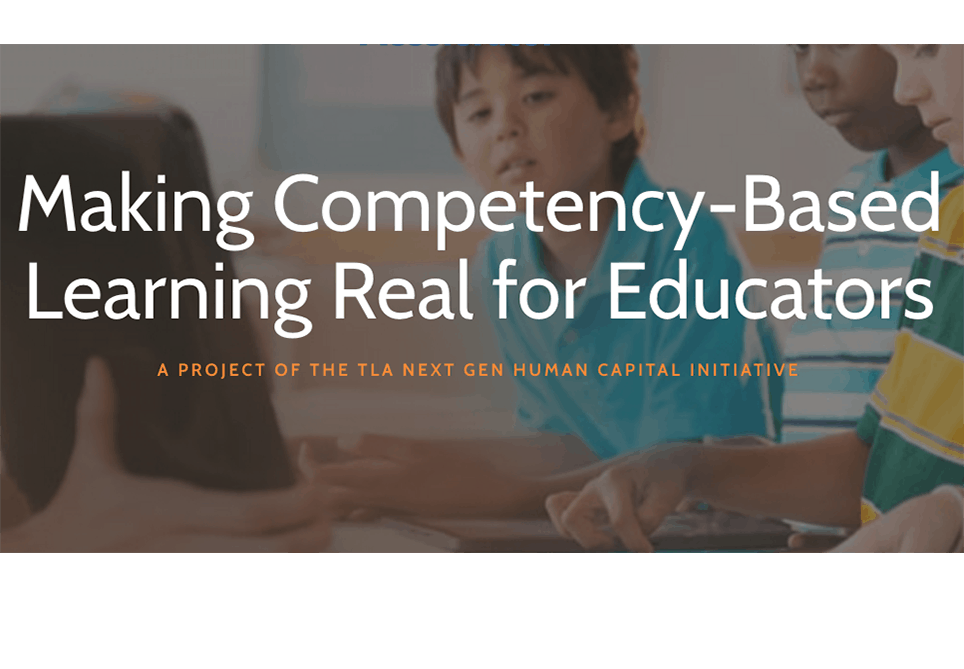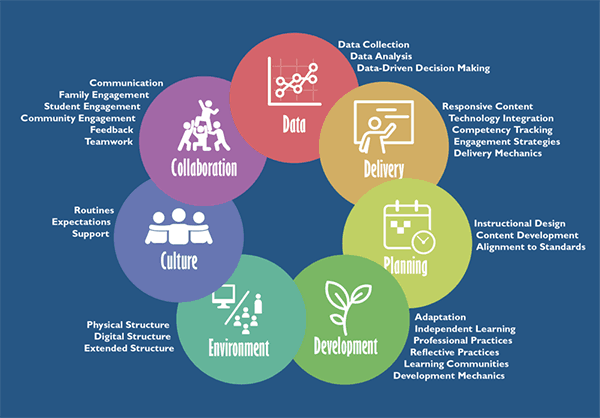New Competency-Based Professional Learning Model for Educators

Merging the theory-based iNACOL Blended Learning Educator Competency Framework and the practice-based work of the TLA Human Capital cohort together, The Learning Accelerator and Yet Analytics, Inc. have announced the Educator Learning Concept Model — a model for competency measurement and recommendation supported by the Experience API (xAPI), a data interoperability standard for next-generation learning data and analytics. BetterLesson, Relay GSE, Friday Institute, Highlander Institute, TNTP, and PowerMyLearning supported in producing content and resources.
Echoing our call to action for the development of blended, competency-based professional learning for educators in Preparing Teachers for Deeper Learning, this new approach aims to give teachers “access to the right materials, to support the right competency development, at the right time, through a shared system for competency-based educator development” across seven skill areas.
There are three major goals of the Model:
- Develop a shared language for educator competencies. Too many of our existing educator supports lack direct alignment to a shared, clear picture of what educators need to learn. This results in fragmented credentials, degrees, and continuous education hours that don’t really add up in an integrated way. The TLA cohort grounded our conversations and mapped content to a common set of educator competencies that we felt were a good start for blended learning environments—the iNACOL Blended Learning Educator Competency Framework. To make these competencies more actionable, we further needed each educator learning standard from the iNACOL Framework to be parsed into highly specific, action-based learning Elements, to allow for more granularity and measurability.
- Create a shared tagging mechanism for connecting learning resources across platforms. Each of the cohort organizations own and locally host their content independently in the platform and format of their choice, which allows for continued future growth and iteration. Educators need ways to find content addressing the same learning topics across these platforms easily, so we needed a common tagging model for all of the resources based on all of the learning Elements identified in the competency set. This allows for content to be searchable by topic as well as by more specific learning objectives.
- Connect the back-end learning data. Once a shared language for competency and content tagging is created, we needed a common format for data coming out of activities and assessments. Yet developed a model for solving the interoperability and portability challenge through a system of data exchange using the Experience API (xAPI), a data specification that makes it possible to collect, standardize, and analyze, experiential learning data from any source, across systems.
More on the Educator Learning Content Model, examples, processes and partners can be found online at tlaeducatorlearning.
For more on the future of teacher preparation and professional development, see:
- 5 Best Practices for Reimagining Professional Learning This Year
- Next-Gen Professional Learning: Online, Personalized and Collaborative
- Micro-credentials for Personalized, Powerful Professional Learning
iNACOL is a Getting Smart Advocacy Partner.






0 Comments
Leave a Comment
Your email address will not be published. All fields are required.